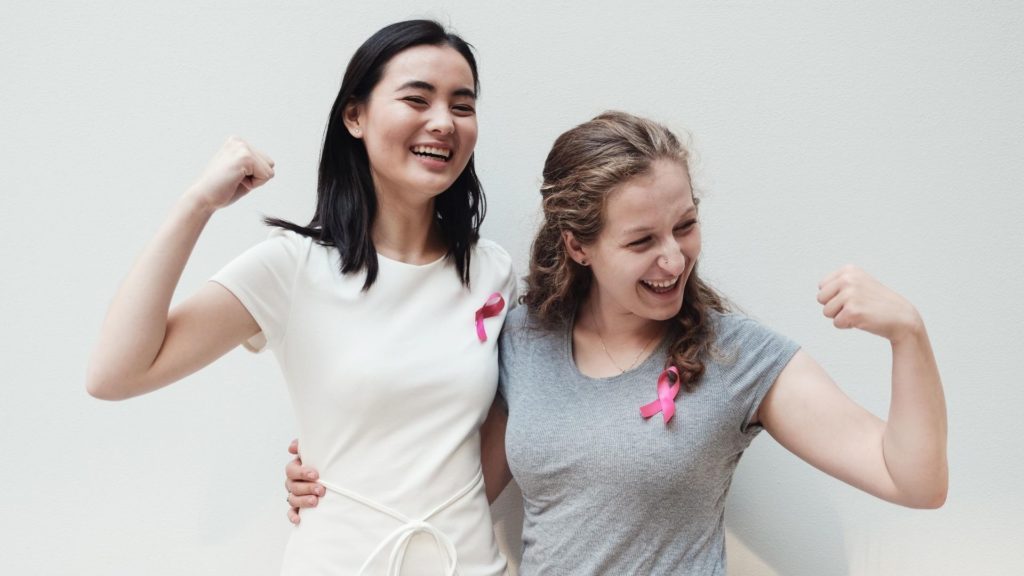Actress Angelina Jolie recently disclosed that she underwent a double mastectomy in Feb. 2013 to reduce her chances of developing breast cancer. She will also receive multiple surgeries over the next two months to reconstruct her breasts. Jolie made the announcement in an editorial that appeared in the May 13, 2013 edition of the New York Times. While this decision has sparked a debate between whether or not to get a mastectomy, it doesn’t fail to highlight the many options women have today. Whatever you choose, there are plenty of things to consider:
Overview
The Centers for Disease Control and Prevention reports breast cancer is the most common type of cancer in the United States after non-melanoma skin cancer. It’s also one of the leading causes of cancer-related deaths among women. The CDC also says that 211,731 women were diagnosed with breast cancer in the United States during 2009, the most recent year data is available. The incidence rate covers about 90 percent of the population in the United States. The number of deaths from breast cancer by women in the United States was 40,676 for 2009. This mortality rate covers virtually the entire United States population.
Mutations
The BRCA genes are responsible for tumor suppression, and currently include the BRCA1 and BRCA2 genes. Jolie has a mutation in the BRCA1 gene that gives her a 60 percent chance of getting breast cancer, according to the National Cancer Institute. This mutation affects about 1 person in 500 within the United States and causes 5 to 10 percent of all breast cancer cases, and 10 to 15 percent of all ovarian cancer cases.
Choices
The decision between surgery and medical treatment is a very personal one that depends on many factors such as a woman’s life experiences and her age. For example, a young woman who hasn’t had children will be less likely to choose surgery than an older woman who has already completed her family. A woman should also consider her family history and consult with a genetic counselor to determine which mutations she has.
Genetic Testing
Myriad Genetics owns patents for the BRCA1 and BRCA2 mutations in the United States and is the only provider of the tests for these mutations. This company is based in Salt Lake City and was founded in 1991. It located both BRCA genes during the mid-1990s and currently performs about 250,000 different tests for the BRCA mutations. The most comprehensive of these tests costs about $4,000, although insurance covers this cost for about 95 percent of women taking the tests. Medicaid doesn’t pay BRCA screening in some states.
Insurance carriers don’t receive the results of these tests and are legally prohibited from using those results to determine premiums. Beginning in 2014, healthcare laws in the United States will also prevent these carriers from using pre-existing conditions to deny coverage. Carriers may refuse to cover the cost of BRCA testing when the patient doesn’t have a history of breast cancer. While the idea of paying for a test entirely out of pocket can be alarming, early detection and prevention of breast cancer is invaluable.
Surgery
New surgical techniques have improved the ability of surgeons to reconstruct the breasts, and many variations of mastectomies are now available. One procedure excises less skin, which gives a more natural look and minimizes scarring. Another mastectomy removes the breast tissue but leaves the chest muscles and lymph nodes under the arms intact. A radical mastectomy removes the breast tissue, muscles in the chest wall and many lymph nodes. The cost of a mastectomy is usually covered by insurance and may range from $15,000 to $50,000, depending on location and the specific procedure.
Medical Treatment
Patients at high risk for breast cancer may also decide to monitor the breasts for signs of cancer and take drugs to reduce the risk of developing a tumor. This approach now provides a mortality benefit similar to a mastectomy due to advances in the medical treatment of breast cancer in its early stages. A study published in a 2009 issue of PharmacoEconomics reported the cost of medical treatment for breast cancer may exceed $100,000 per year. This estimate depends on factors such as the type of tumor and medication required.
Which option is right for you? If you have concerns about, or a history of, breast cancer, speak with your doctor. Determining the right treatment is important, and everything from your history to your lifestyle should be considered. Don’t hesitate—save second base!

